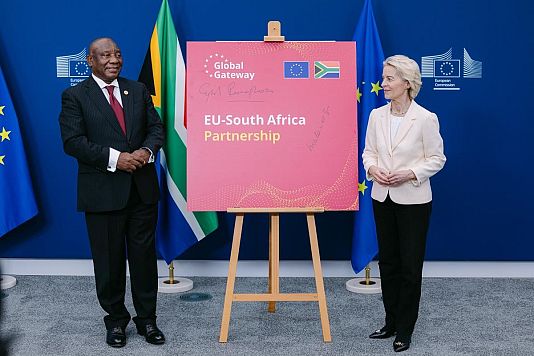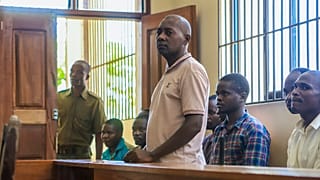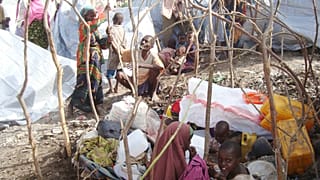Business Africa
Cameroon Presidential Election: Decisive Vote Amid Economic Uncertainty
In Yaoundé, uncertainty surrounding the presidential election is already weighing on the economy. Many Cameroonians are limiting their spending, fearing post-election disruptions. Cabrel Wilson, a young shopkeeper, says, “My sales have dropped because most of my clients are afraid something might happen and prefer to keep their money for food or healthcare.”
The country, led by Paul Biya since 1982, is experiencing a deep economic crisis. Industries, distribution, and small businesses are paralyzed, and even taxi drivers feel the direct impact. Pierre Chak testifies, “Everything is blocked, nothing works, it’s worse than before. All we can do is hope God saves Cameroon.”
For economist and consultant Eugène Nyambal, this election highlights Cameroon’s economic record under Paul Biya: “The record is negative, and our youth is sending a clear message. Many well-educated young people want to leave Cameroon. The policies implemented in recent years will not restart the economic and social engine.”
Nyambal stresses several measures are needed to reverse the trend: “We must send a message of hope to Cameroonians, restore meritocracy, take urgent action against high living costs, and renovate infrastructure. Resources need to be reallocated, and the private sector supported to diversify the economy and restore Cameroon’s role in the region.”
The October presidential election marks a turning point for the country. The main challenge for the next administration will be to create jobs for a youth that makes up more than 60% of the population, with over 35% unemployed, to prevent the economic crisis from worsening. The winner of the election has not yet been announced, prolonging uncertainty.
Madagascar: Protests and Political Crisis Weigh on the Economy
In Madagascar, the ongoing political crisis is compounding an already critical economic situation. While Colonel Michael Randrianirina claims to have taken control of the army to “save a country that is dying,” institutional uncertainty, between a possible election within sixty days and rumors of a two-year military transition, is paralyzing economic activity.
On the ground, the effects are immediate, as reported by Volana Razafimanantsoa, journalist in Antananarivo for Business Africa: “Dozens of shops have been looted, one bookstore reports losses exceeding 80,000 euros, and even businesses that remain open are seeing a massive drop in customers. Tourism is also at a standstill, with flights and bookings canceled.”
In a country where more than 75% of the population lives below the poverty line and 80% of the economy is informal, each day of disruption further threatens household income. Without rapid political stabilization, Madagascar risks moving from a political protest to a full economic stranglehold.
South Africa: EU Invests €11.5 Billion for Energy Transition
South Africa is taking a strategic turn in its economic alliances. As trade tensions with the United States intensify, the European Union has announced a €11.5 billion investment to support the energy transition, modernize infrastructure, and strengthen the health sector in Africa’s largest industrial economy.
This support aims to gradually reduce reliance on coal, which still provides nearly 85% of the country’s electricity. The program includes the creation of renewable energy capacities, upgrades to the power grid, and the development of energy storage solutions. For Brussels, Pretoria is becoming a key partner in Africa’s green transition. This move comes as Washington has imposed 30% tariffs on South African exports, potentially threatening up to 100,000 jobs in the automotive industry. The end of preferential access to the U.S. market via AGOA pushes South Africa to redirect its trade alliances.
“South Africa is not only transforming itself, it is becoming a pioneer of clean energy for the entire continent,” said Ursula von der Leyen, noting that this cooperation will culminate at the G20 in Johannesburg.






![Can Uganda leverage oil to turn around economy? [Business Africa]](https://images.euronews.com/articles/stories/09/59/88/52/320x180_cmsv2_236e5c53-1dab-5e80-8bb6-ce828be63e24-9598852.jpg)
![Global aircraft parts shortage grounds African airlines [Business Africa]](https://images.euronews.com/articles/stories/09/60/55/34/320x180_cmsv2_2c48d2fc-7517-58c3-aaa1-2a6ee853cd72-9605534.jpg)






02:13
Families bid farewell to schoolchildren in South Africa killed in a school bus crash
01:01
South Africa to step aside from G20 during United States presidency
00:29
South Africa's Kruger park suffers 'devastating' damage from floods
00:44
Fire crews battle to contain wildfires east of Cape Town
01:21
13 schoolchildren killed in tragic road crash south of Johannesburg
00:54
Floodings kill at least 10 in South Africa, triggering the closure of Kruger Park